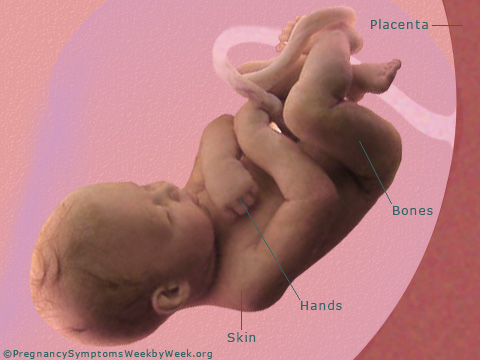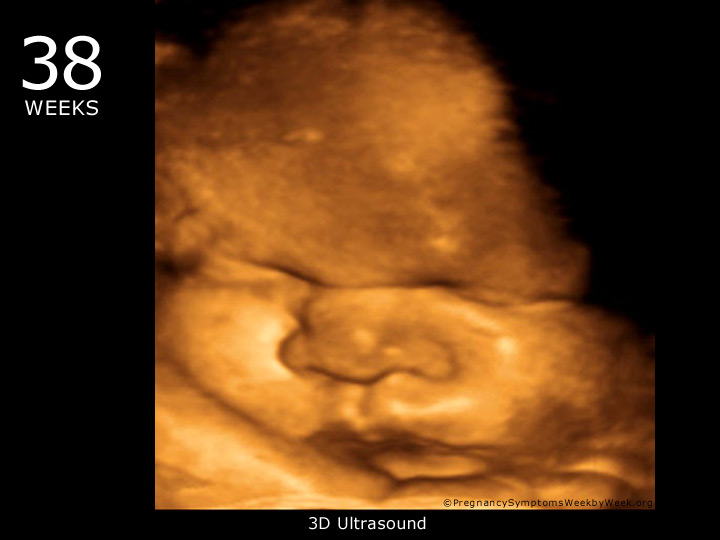38 Weeks Pregnant ─ Pregnancy Symptoms
Your Baby is Completing the Final Stages of Development During Week 38 of Your Pregnancy
20 DAYS TO GO. . .
COMMON PREGNANCY SYMPTOMS FOR WEEK 38
Even though you could have your delivery this week, the uterus is still the best place for your baby while they complete their final development. Your baby will benefit from the extra time in the uterus as they prepare for delivery. If they have not adjusted into a head-down position by now, they may complete the transition this week.


Fetus Size
Your baby is about the size of a crenshaw melon during week 38.
LENGTH: 19.98 in / 50.7 cm
WEIGHT: 7.26 lb / 3293.1 g
View Weekly Growth Chart >>
WHAT'S GOING ON INSIDE?
The Placenta is now at its full size and is spread out flat against your uterus. It will continue its function of supplying nutrients and antibodies to your baby until he or she is born. These antibodies will help your baby fight off infections during the first few months after birth.
The Bones making up your baby's skeleton have hardened. This process is known as ossification.
The Hands can now grasp very tight and may be curled into fists or holding the umbilical cord.
The Skin has shed most of the downy coat of lanugo that covered your baby for weeks, but you may see some on the upper back and shoulders when he or she arrives.
At times you may feel uncomfortable after eating a meal. This is do to the limited space in your abdominal cavity. You will become full faster and may experience acid reflux. To try and prevent acid reflux avoid acidic foods, such as grapefruit, oranges, tomatoes, and vinegar.Even though eating may be uncomfortable at times, it is important to stick to a regular schedule. If you go long periods of time without food you might become light-headed and weak from low blood sugar (hypoglycemia). You need to keep your blood sugar up, because your baby consistently draws increasing amounts of glucose from your bloodstream until they are born.If you experience any form of bleeding in the late stage of your pregnancy it is important that you and your baby are reviewed by your doctor immediately. Bleeding that is caused by the placenta can be a serious threat for your baby. When the placenta lies low in the uterus it is referred to as "placenta previa" and affects about 1 in 200 pregnancies. Another possible cause is "placenta abruption" which is when the placenta separates from the uterine lining and is accompanied by severe pain. Placenta abruption affects about 1 in 100 pregnancies. Other possible causes of bleeding can be cervical irritation caused by intercourse or a polyp. Unless the bleeding is severe, doctors usually give you an evaluation and prescribe bed rest.
As you ponder the labor of your baby you may develop symptoms of fear and anxiety. These feelings are completely normal. It is comforting to remember your body is designed to handle the pain of labor. During labor, your body's endorphin levels will rise to help you cope with the pain. So as the intensity of your contractions build, so does your ability to handle them.
<< Week 37 - PREVIOUS | Week 38 | NEXT - Week 39 >>


